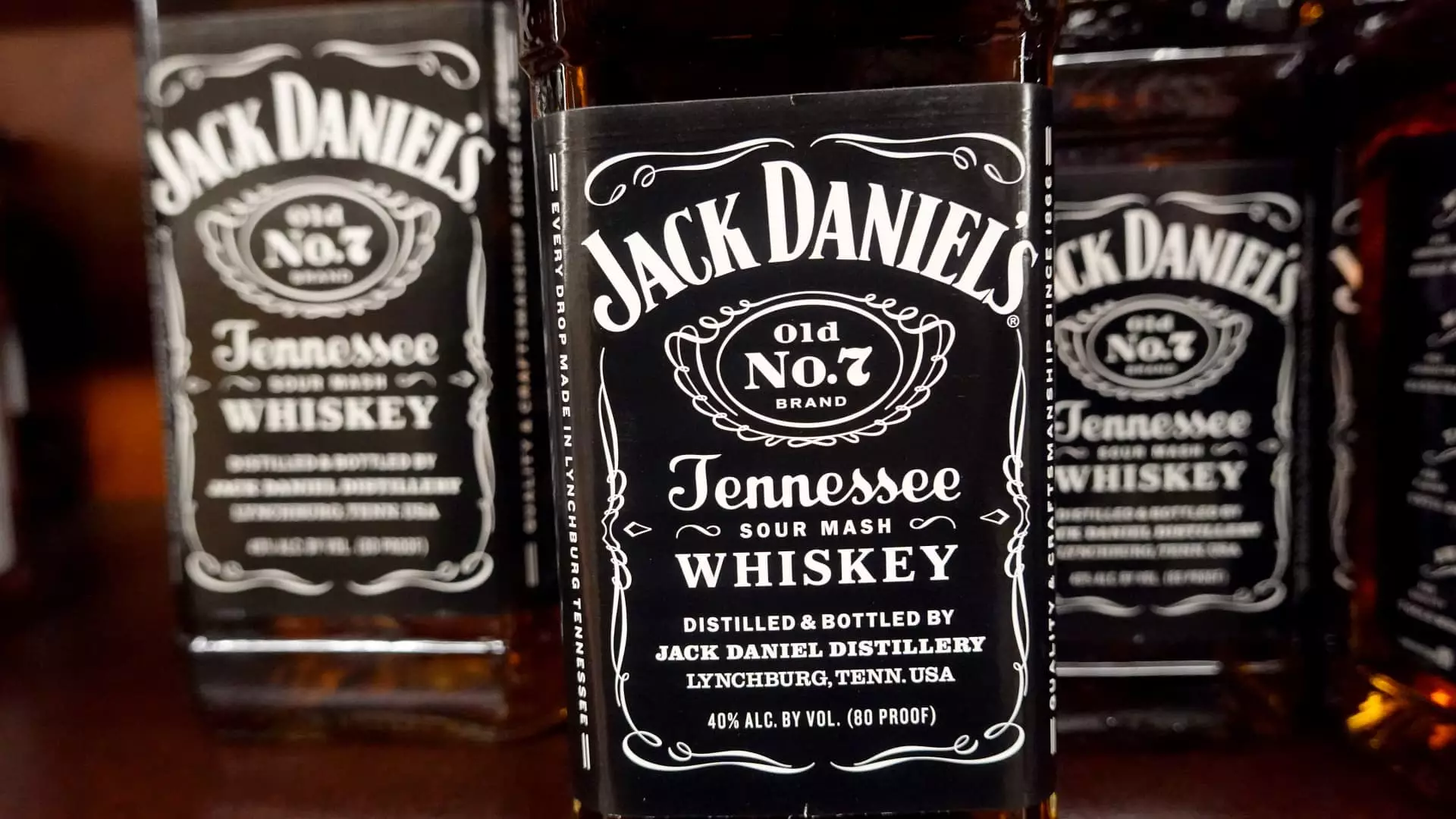In a startling turn of events, Brown-Forman, the iconic producer behind Jack Daniel’s whiskey, has witnessed its shares dive by more than 18% following a dismal earnings report for the fiscal fourth quarter of 2025. The company’s revenue fell significantly short of Wall Street forecasts, producing a palpable disappointment in an industry that once thrived on the promise of premium spirits. The figures—$894 million in revenue against estimates of $967.4 million—underscore a troubling reality that has become all too familiar in the beverage sector: weak discretionary spending, a direct consequence of inflationary pressures and shifting consumer habits.
CEO Lawson Whiting’s optimistic spin on the situation—highlighting important progress amid an “exceptionally challenging macroeconomic environment”—seems to lack conviction when juxtaposed with a staggering 45% drop in net income, which slipped to $146 million. The perception of resilience falters under the weight of quantitative realities. The ongoing challenges, particularly the subtle yet damaging impact of tariffs, paint a complex picture of a once-dominant player struggling to maintain its footing in increasingly turbulent waters.
Tariffs and Their Ripple Effect
The shadow of tariffs continues to loom large over Brown-Forman. Analysts warn that even a nominal increase in duties on U.S. whiskey exports to the EU could precipitate a disastrous 10% reduction in the company’s earnings before interest and taxes (EBIT). This fragile state highlights the precariousness of Brown-Forman’s market position. Comparatively, other beverage titans such as Constellation Brands and Anheuser-Busch have more diverse portfolios, allowing them to weather challenges that hit traditional distillers harder.
In a landscape where consumer choices are guided by economic constraints, the idea that consumers will continue to splurge on high-end brands is increasingly fanciful. The decreasing net sales for Brown-Forman’s tequila and ready-to-drink lines, plummeting by 14% and 6% respectively, exemplify the shifting dynamics of consumer behavior in less-than-ideal economic settings.
Strategic Missteps and a Bleak Outlook
Brown-Forman’s admissions regarding the operating environment for the upcoming fiscal year do little to inspire confidence. The expectation of declines in organic net sales and operating income points to strategic miscalculations made in an era defined by volatility. The company’s inability to effectively navigate these economic storms reflects a broader trend in corporate America—a resistance to adapt in a rapidly evolving landscape.
The dilution of Jack Daniel’s presence in Canadian liquor stores, driven by national responses to U.S. tariffs, has exacerbated the situation. Whiting’s description of this scenario as “worse than a tariff” highlights a palpable disconnect between management and market realities. It brings into question whether the historic appeal of Jack Daniel’s is enough to insulate the brand from external pressures when loyalty can be swayed by pricing and accessibility.
The sentiment surrounding Brown-Forman echoes across the industry, suggesting that the spirit of resilience is in peril. As consumers close their wallets amid economic uncertainty, the once-favored whiskey producer risks becoming another cautionary tale of misaligned expectations and reality. Future success may require a seismic shift in both strategy and market engagement, or risk being left in a dust cloud of delivering mediocre figures.


Leave a Reply